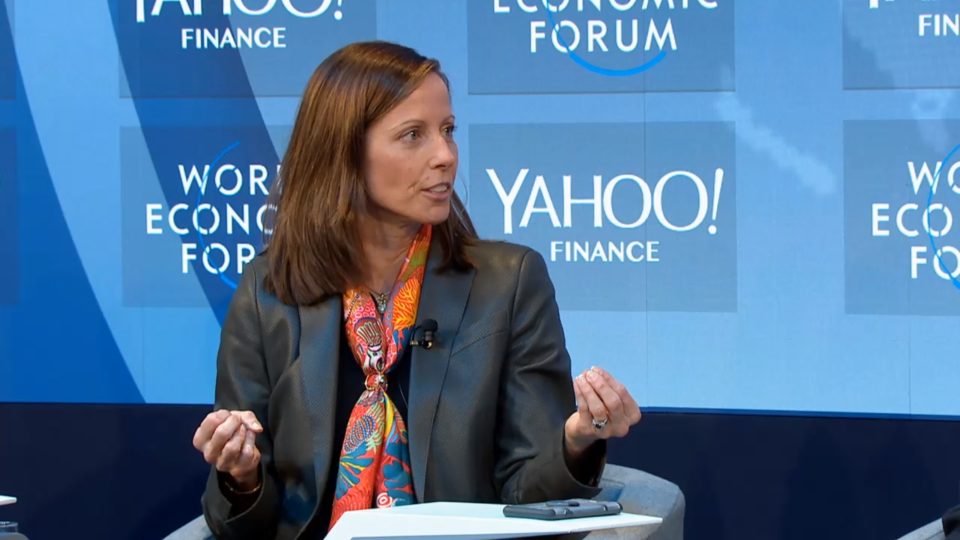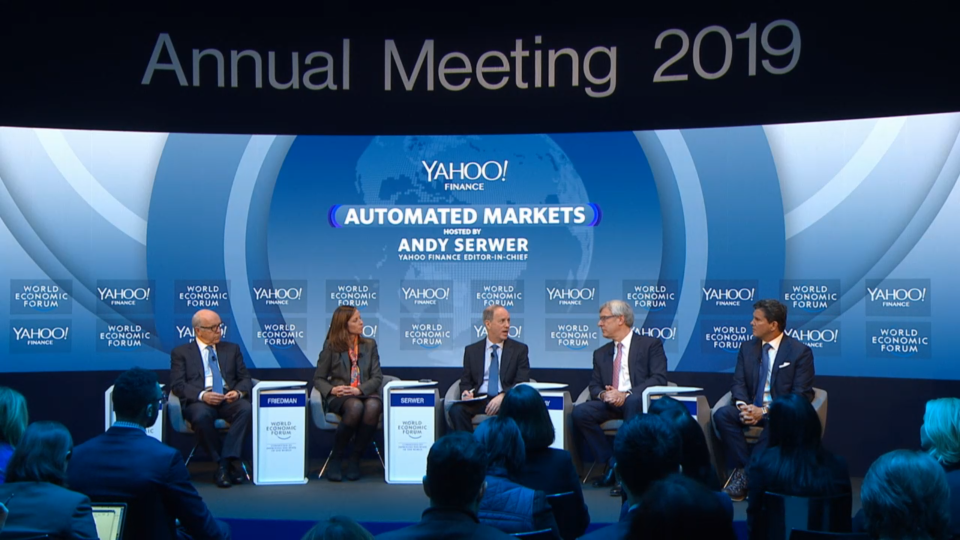Why investors have 'never had it better' despite trade war and populism

The average investor has “never had it better” despite ongoing trade wars, rising populism and bleak forecasts for the global economy, according to business leaders at a Yahoo Finance event at Davos.
William Ford, CEO of private equity firm General Atlantic, said technology like index funds had transformed modern trading in a way that hugely benefited the average retail investor.
Speaking at a Yahoo Finance event on automated markets at the World Economic Forum (WEF) in Davos, Switzerland, he said: “I think it’s never been a better time. Because of the range of products the client has access to, it’s never been better, never been cheaper and never been more liquid.
“It’s true for institutional portfolios too – institutions have never had a better time to build portfolios.
“With passive products, exchange-traded funds (ETFs) and alternatives, they really can shape their risk profile and return profile in ways they couldn’t a long time ago. All that is very positive.”
READ MORE: Nasdaq chief says machines won’t ever replace humans altogether in trading
Adena Friedman, CEO and president of the Nasdaq stock index, also said: “It’s democratised markets. Millions of investors have much better access to markets than they ever had before, and it’s a lot cheaper.
“If you are an average retail investor, you’ve never had it better. Costs are down at least 75%, and even in some index funds you’re paying zero fees and commissions.
“It is a wonderful world for retail and they have a lot of index or active choices.”
She said the one area retail investors were being “held back from” was private equity, and that she hoped this would change over time.

But Ford said there were some areas that were still “high-cost and of little value” for retail investors.
The General Atlantic CEO added: “The one last thing that needs to be solved is distribution channels. The management costs and transaction costs have been squeezed, but parts of the distribution channel for the retail investor are still quite high-cost.
“That’s the next thing that’s going to get disrupted. You’re seeing it already with direct electronic channels between the asset manager and the client.”
David McKay, chief executive and president of the Royal Bank of Canada (RBC), said blockchain could have the potential in future to increase retail investors’ access to private equity.
READ MORE: Alarming forecast for the global economy as Davos begins
He also said RBC’s merger of its ETF business with BlackRock’s Canadian asset manager, unveiled earlier this month under the new name RBC iShares, reflected such changes in the industry.
“For cost reasons, for liquidity reasons, for customer choice and distribution, RBC iShares was formed,” he said, adding that it offered BlackRock better distribution through RBC’s branch and advisor channels.
Asked by the moderator Andy Serwer, Yahoo Finance editor-in-chief, whether anyone should be concerned about increased concentration in the industry, McKay said it was a “scale game”.
McKay explained: “We felt we had to bring those two businesses together given the scale required to compete in the ETF market.”
Other speakers on the panel discussion at the WEF, held in the Swiss alpine town of Davos, included Ontario Teacher’s Pension Plan CEO and president Ron Mock.

 Yahoo Finance
Yahoo Finance 